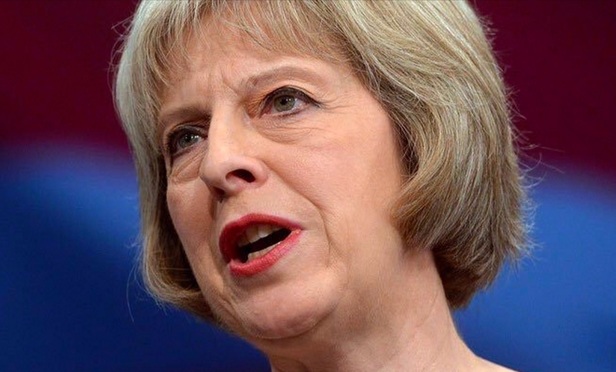City lawyers criticise Prime Minister's Florence speech and call for more clarity to break Brexit deadlock
City partners including Bakers chair Paul Rawlinson and Hogan Lovells public law head Charles Brasted offer their take on Theresa May's latest Brexit pronouncements
September 25, 2017 at 08:22 AM
5 minute read
Prime Minister Theresa May's speech in Florence last Friday (22 September) attempted to strike a "calming note" with proposals for a post-Brexit transition period, but many City lawyers say she did not provide enough clarity in many areas.
In the speech, May laid out plans for a two-year transition period after March 2019, in an effort to ease concerns that the UK is headed for a 'cliff-edge' hard Brexit.
However, City lawyers have raised concerns about several ongoing uncertainties, from the rights of EU nationals in the UK to the question of continued payments to the EU and the future of the UK services industry. Here are a selection of responses to the speech.
Paul Rawlinson, global chair, Baker McKenzie
 "The pace of progress since the triggering of Article 50 has been frustratingly slow and there are still too many uncertainties, which is why it is clear to me and many of the clients I meet that the UK must avoid a 'cliff edge' Brexit. I would welcome any move to a 'status quo' transition – including potentially remaining within the EU's single market and customs union – for two or three years after 2019.
"The pace of progress since the triggering of Article 50 has been frustratingly slow and there are still too many uncertainties, which is why it is clear to me and many of the clients I meet that the UK must avoid a 'cliff edge' Brexit. I would welcome any move to a 'status quo' transition – including potentially remaining within the EU's single market and customs union – for two or three years after 2019.
"Yes, the EU would be damaged by a hard Brexit, but I am convinced – and we have research coming out shortly on trade flows which confirms this – that the UK would be damaged far more. As a UK employer, we remain very concerned about guaranteeing the rights of EU nationals who have made the UK their home for their careers and for their families. We already know from our own study on the labour market released in June that unless progress is made, large numbers of skilled EU nationals are likely to leave the UK before the outcome of the Brexit negotiations takes effect, resulting in potentially huge skills gaps. That is why we hope that the government resolves this issue as quickly as possible in its negotiations."
Bruce Potter, chairman, Blake Morgan
 "Theresa May set out to strike a conciliatory and calming note with her speech in Florence, but it was not enough to paper over the huge gap that remains between the UK's domestic political view of Brexit and the way that the rest of Europe sees it. The question of continued payments to the EU is a huge stumbling block which must be resolved if any useful talks are to take place on life after Brexit – the vital issue for the UK political audience.
"Theresa May set out to strike a conciliatory and calming note with her speech in Florence, but it was not enough to paper over the huge gap that remains between the UK's domestic political view of Brexit and the way that the rest of Europe sees it. The question of continued payments to the EU is a huge stumbling block which must be resolved if any useful talks are to take place on life after Brexit – the vital issue for the UK political audience.
"Mrs May has asked the EU to be 'imaginative and creative' but until she is more forthcoming about exactly what she wants Brexit to be, it is hard to imagine anything but continued deadlock."
Charles Brasted, head of public law and policy, Hogan Lovells
"This intervention is welcome. It makes clear the UK Government's priority is now clearly to provide valuable certainty during the transitional period. But words and ambitions are not enough. Mrs May's ambitious proposal, although a concrete attempt to reinvigorate discussions, does not resolve the parties' many differences on key issues.
"Eyes now turn to the continent to gauge the appetite of the EU27 for May's invitation to seek creative solutions. Businesses will look again for a collaborative, pragmatic approach on both sides. They must also look to themselves in redoubling their efforts to make the case for a Brexit process and a future relationship that deliver on prosperity for all of Europe. This is no zero-sum game."
Christina Blacklaws, vice-president, The Law Society
 "We have been arguing for many months for a deal that ensures people's rights but also that takes steps so our economy is not undermined. This proposal for an interim deal is to be welcomed – not least for our legal system which, as Theresa May said in her Florence speech, is respected the world over. A clearer vision of the future of the UK services industry is urgently needed."
"We have been arguing for many months for a deal that ensures people's rights but also that takes steps so our economy is not undermined. This proposal for an interim deal is to be welcomed – not least for our legal system which, as Theresa May said in her Florence speech, is respected the world over. A clearer vision of the future of the UK services industry is urgently needed."
Alexi Dimitriou, competition lawyer, Ashurst
"The Prime Minister's speech shines a welcome light on some key elements of the UK's departure – the willingness of the government to remain bound by EU rules during a two-year 'implementation phase' is clearly better than a cliff edge scenario. However, this proposal will require the EU's agreement and the details of such 'implementation phase' will need to be negotiated, which will not be easy.
"The Prime Minister's proposal that the UK courts should take into account the judgments of the European Court of Justice (ECJ) is a pragmatic step in seeking to ensure the consistent interpretation of UK and EU law post-Brexit. However, as the EU views the ECJ and access to the single market as an indivisible package, it is difficult to see them agreeing that the supremacy of the ECJ should be limited during any 'implementation phase'."
This content has been archived. It is available through our partners, LexisNexis® and Bloomberg Law.
To view this content, please continue to their sites.
Not a Lexis Subscriber?
Subscribe Now
Not a Bloomberg Law Subscriber?
Subscribe Now
NOT FOR REPRINT
© 2025 ALM Global, LLC, All Rights Reserved. Request academic re-use from www.copyright.com. All other uses, submit a request to [email protected]. For more information visit Asset & Logo Licensing.
You Might Like
View All

Jones Day, BCLP & Other Major Firms Boost European Teams with Key Partner Hires
4 minute read
$13.8 Billion Magomedov Claim Thrown Out by UK High Court
Trending Stories
- 1South Florida Attorney Charged With Aggravated Battery After Incident in Prime Rib Line
- 2'A Death Sentence for TikTok'?: Litigators and Experts Weigh Impact of Potential Ban on Creators and Data Privacy
- 3Bribery Case Against Former Lt. Gov. Brian Benjamin Is Dropped
- 4‘Extremely Disturbing’: AI Firms Face Class Action by ‘Taskers’ Exposed to Traumatic Content
- 5State Appeals Court Revives BraunHagey Lawsuit Alleging $4.2M Unlawful Wire to China
Who Got The Work
J. Brugh Lower of Gibbons has entered an appearance for industrial equipment supplier Devco Corporation in a pending trademark infringement lawsuit. The suit, accusing the defendant of selling knock-off Graco products, was filed Dec. 18 in New Jersey District Court by Rivkin Radler on behalf of Graco Inc. and Graco Minnesota. The case, assigned to U.S. District Judge Zahid N. Quraishi, is 3:24-cv-11294, Graco Inc. et al v. Devco Corporation.
Who Got The Work
Rebecca Maller-Stein and Kent A. Yalowitz of Arnold & Porter Kaye Scholer have entered their appearances for Hanaco Venture Capital and its executives, Lior Prosor and David Frankel, in a pending securities lawsuit. The action, filed on Dec. 24 in New York Southern District Court by Zell, Aron & Co. on behalf of Goldeneye Advisors, accuses the defendants of negligently and fraudulently managing the plaintiff's $1 million investment. The case, assigned to U.S. District Judge Vernon S. Broderick, is 1:24-cv-09918, Goldeneye Advisors, LLC v. Hanaco Venture Capital, Ltd. et al.
Who Got The Work
Attorneys from A&O Shearman has stepped in as defense counsel for Toronto-Dominion Bank and other defendants in a pending securities class action. The suit, filed Dec. 11 in New York Southern District Court by Bleichmar Fonti & Auld, accuses the defendants of concealing the bank's 'pervasive' deficiencies in regards to its compliance with the Bank Secrecy Act and the quality of its anti-money laundering controls. The case, assigned to U.S. District Judge Arun Subramanian, is 1:24-cv-09445, Gonzalez v. The Toronto-Dominion Bank et al.
Who Got The Work
Crown Castle International, a Pennsylvania company providing shared communications infrastructure, has turned to Luke D. Wolf of Gordon Rees Scully Mansukhani to fend off a pending breach-of-contract lawsuit. The court action, filed Nov. 25 in Michigan Eastern District Court by Hooper Hathaway PC on behalf of The Town Residences LLC, accuses Crown Castle of failing to transfer approximately $30,000 in utility payments from T-Mobile in breach of a roof-top lease and assignment agreement. The case, assigned to U.S. District Judge Susan K. Declercq, is 2:24-cv-13131, The Town Residences LLC v. T-Mobile US, Inc. et al.
Who Got The Work
Wilfred P. Coronato and Daniel M. Schwartz of McCarter & English have stepped in as defense counsel to Electrolux Home Products Inc. in a pending product liability lawsuit. The court action, filed Nov. 26 in New York Eastern District Court by Poulos Lopiccolo PC and Nagel Rice LLP on behalf of David Stern, alleges that the defendant's refrigerators’ drawers and shelving repeatedly break and fall apart within months after purchase. The case, assigned to U.S. District Judge Joan M. Azrack, is 2:24-cv-08204, Stern v. Electrolux Home Products, Inc.
Featured Firms
Law Offices of Gary Martin Hays & Associates, P.C.
(470) 294-1674
Law Offices of Mark E. Salomone
(857) 444-6468
Smith & Hassler
(713) 739-1250










